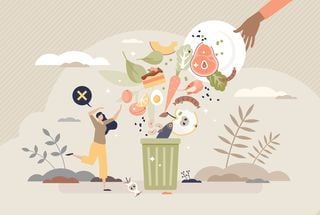Reducing Food Waste in Hospitality: The Key is not what to do, but how to do it...
Waste Not, Want Not: Food as a Major Sustainability Lever?
Sustainability in Hospitality — Viewpoint by Willy Legrand
The key question – not What, How
Food waste in hospitality is a good example of the challenges facing sustainability. In food waste, like many other areas of sustainable hospitality, we know what needs to be done, but changing the behaviors – of individuals (consumers, in organizations) and businesses – is hard work.
Recognizing that we need not only engineers but behavioral and organization scientists will be a good first step.
Change, whether in businesses or individual behaviors, is hard. Too often, the argument is that if we educate people, they will "see the light" and change. But we only need to look at ourselves to know this isn't true. There are many things I know I should do more (join me in some exercise, anyone?) but don't. Some of these changes – like eating meat with dinner – are baked into long cultural traditions and people's identities.
There is no silver bullet – but a whole range of actions – from education to nudges, pro-social pro-environmental marketing to new technology adoption. We must bring all these tools – and more - to the table to effect the change we need.
And we need to remember that it is not "one and done". Asking for personal behavior change takes long-term commitment to support and reinforcement.
Change can happen. Watch a TV show from the 60s to see how attitudes to smoking have changed (one of my nostalgic favs is Get Smart, the spy spoof. Agent 86 always has a cigarette in his hand).
Change – in the restaurant or when we sit for a meal, doesn't happen quickly (until we hit the tipping point and it does), it doesn't work for everyone, and it will take all of us supporting each other through a complex, complicated transition.

 by
by 

